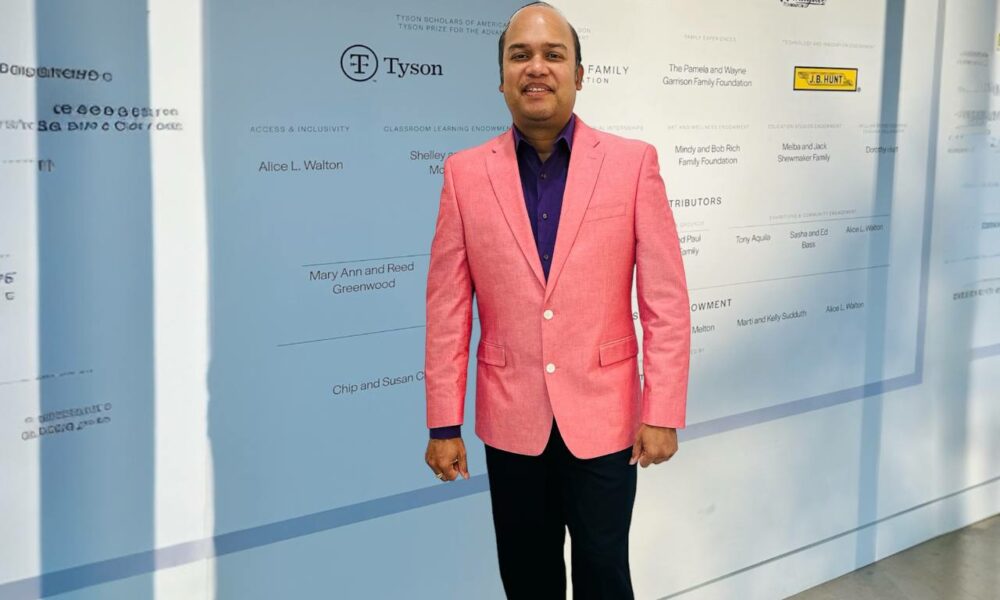Inevitable Innovations: Walmart’s Senior Product Manager Satyakam Sahoo on the Growing Role of Robotics and Automation in Global Retail Business

While the ripples of the current surge of advancement in AI technology and related fields are the most prominent in the deeply digitized areas, the effects are becoming ever more noticeable in other industries, even in those that seem to belong purely to the physical world, such as retail business. According to Forbes, in February 2024, at one of the most prominent retail trade shows of the year, the National Retail Foundation Big Show, more automated solutions were presented than ever before. A strategic professional Satyakam Sahoo, currently a senior product manager at Walmart, is one of the people who make this transformation happen.
At one of his previous jobs, at JDRF International, he led the launch of the Type 1 Diabetes Detection screening program, implementing new ways of using advanced technology for the benefit of the community. At Walmart, he led several strategic product initiatives, with one of the most prominent ones being improving customer experience through the new Claims Management system. Recently, Satyakam has a rare honor to participate in the jury board of the Globee Awards, which illustrates his achievements being recognized in the industry on a global level. Currently he focuses his scientific activities on the impact of technological advancements in retail business and finding a way to implement them in practice for the benefit of the company and its customers alike.
“If businesses are focused on long-term, sustainable success, they should seek solutions which genuinely fulfill both their needs and the needs of their customers,” claims Satyakam Sahoo. “Implementing robotics into the working processes is an important step towards finding this balance.” The benefits of this approach were proven in practice multiple times, with the most recent example being the project for modernization of the Claims Management System at Walmart, where Satyakam Sahoo designed and implemented a sophisticated automation technology which allowed to streamline operations, increase customer satisfaction, and use human resources more efficiently.
The career path of Satyakam Sahoo encompasses other areas, not limited to retail. The experience he garnered when working first in Tata Consultancy and then in charity organizations such as JDRF International and ALSAC provides him with an integral understanding of the technology impact in multiple industries. For instance, at JDRF International he led the launch of several revenue-generating events, such as “JDRF One Walk” and “Ride to Cure Diabetics”. He also led the launch of the Type 1 Diabetes Detect Screening program, which required integration with a 3rd-party website and effective usage of the research data. At ALSAC he performed as an effective Strategic Partnerships Senior Analyst, leading fundraising campaigns and managing relationships with corporate partners. In both positions, his integral approach helped companies to generate revenue through finding and realizing new fundraising opportunities.
The process of robotics adoption in the retail industry has already started several years ago, but it was moving forward slowly, until the moment when it was boosted by several external factors, from the COVID pandemic to changes in the labor market to advancements in AI technology. As a result, the views on robotics in retail changed drastically: what was perceived as experimental several years ago, now becomes a necessity. “Currently, if the business wants to retain their position on their market, they have to find ways to implement robotics and automation in their processes,” comments Satyakam Sahoo. “Otherwise, they will be soon outpaced by other companies who managed to do so.”
This is why he follows the principle of constant innovation in his own work. In addition to the Claims Management Modernization project mentioned above, he led multiple business process improvement and inventory optimization projects at Walmart, which brought practical benefits for the company in the form of increased business savings.
Naturally, the process of modernization will influence other aspects of the retail industry as well. Robots are able to improve inventory management and warehouse operation, especially if combined with the Internet of Things technology. “While implementing such solutions demands significant initial investment, it pays off long term,” comments Satyakam Sahoo. “One of the major ways to increase workers’ productivity is to free them up from routine tasks, and robotics allow just that.”
For these technological improvements to be efficient, companies often need to reimagine the work environment making new solutions an integral part of it. This, in turn, creates the demand for collaboration between teams of various backgrounds and specializations. For instance, Mr. Sahoo describes the implementation of the IRIS application which he had worked on at the above-mentioned Tata Consultancy. The successful realization of the project required collaboration between teams of diverse countries and cultures, and this level of teamwork will play an even more crucial role for businesses in the future, no matter what industry they belong to.
The Challenges of Automation
Implementing automated solutions in practice is the act of finding a balance, though. For such a solution to work effectively, the company needs to account for various scenarios, carefully working through them and determining, which tasks can be delegated to the robots, and where the human input remains irreplaceable. Consequently, the strategic view of automation is necessary. An example of the right approach to such a task is one of Mr. Sahoos’ projects implemented during his work at ALSAC/St. Jude Children’s Research Hospital, where he automated the Matching Gift process making fundraising more effective and improving the donor experience. This example is proof of the fact that even in such a conservative environment as medical research, it is possible to implement automation for the benefit of all participating parties.
Moreover, it is important not to view robotics implementation as a separate process. “It is part of the larger digital transformation trend in retail, along with AR, Big Data, and other technologies,” points out Satyakam Sahoo. “Consequently, the business should strive for the synergy of the technologies mentioned, not limiting their innovations to one of them.” To fulfill this approach in practice, professionals with a wide set of skills are needed, in the best case combining deep technical knowledge with the understanding of the business operation in a particular industry. The career of Satyakam Sahoo is a characteristic example in this regard.
He acquired a bachelor’s degree in technology at SRM University, India, but never stopped learning since then. In the following years, he gained certifications in Scrum methodology, as well as several AI-related certifications, including AI and Agility and AI for Product management. In his role as a strategic leader, Satyakam Sahoo inspires his team to follow the same approach of relentless professional improvement and developing their skills.
Moreover, he contributes to highlighting innovative achievements of other businesses or individuals and recognizing excellence in the field. At Walmart, he finds it important to promote and support high quality standards. Consequently, he actively shares knowledge and experience with other professionals, fostering teamwork and collaboration. He evaluates projects and suggestions developed by other teams to find out the best ways to use them for the benefit of the company. He highlights that breaking down silos and ensuring cross-functional collaboration becomes an even more crucial factor.
But Satyakam Sahoo doesn’t stop on evaluating his colleagues at Walmart. Recently, he served on the jury for the Globee Awards, one of the most well-known business awards in the world, which is given each year in nine categories to celebrate the best of the best in business and technology. The judging panel each year includes industry experts, executives, and professionals from diverse fields which provides deep and impartial evaluation of nominee entries. In 2024, more than 25,000 professionals applied for a place at a judging panel, of which only 500 were selected, which highlights the demanding requirements to participate in the judging process.
Satyakam Sahoo finds the constant strive for learning and professional improvement a core necessity for success both for individuals and companies. “In the industry where each day can open new innovation opportunities,” he concludes, ‘one needs to learn and improve continuously to remain competitive. It is true both for individuals and for businesses as a whole, and the development of robotics in retail is just one manifestation of a wider trend.”





